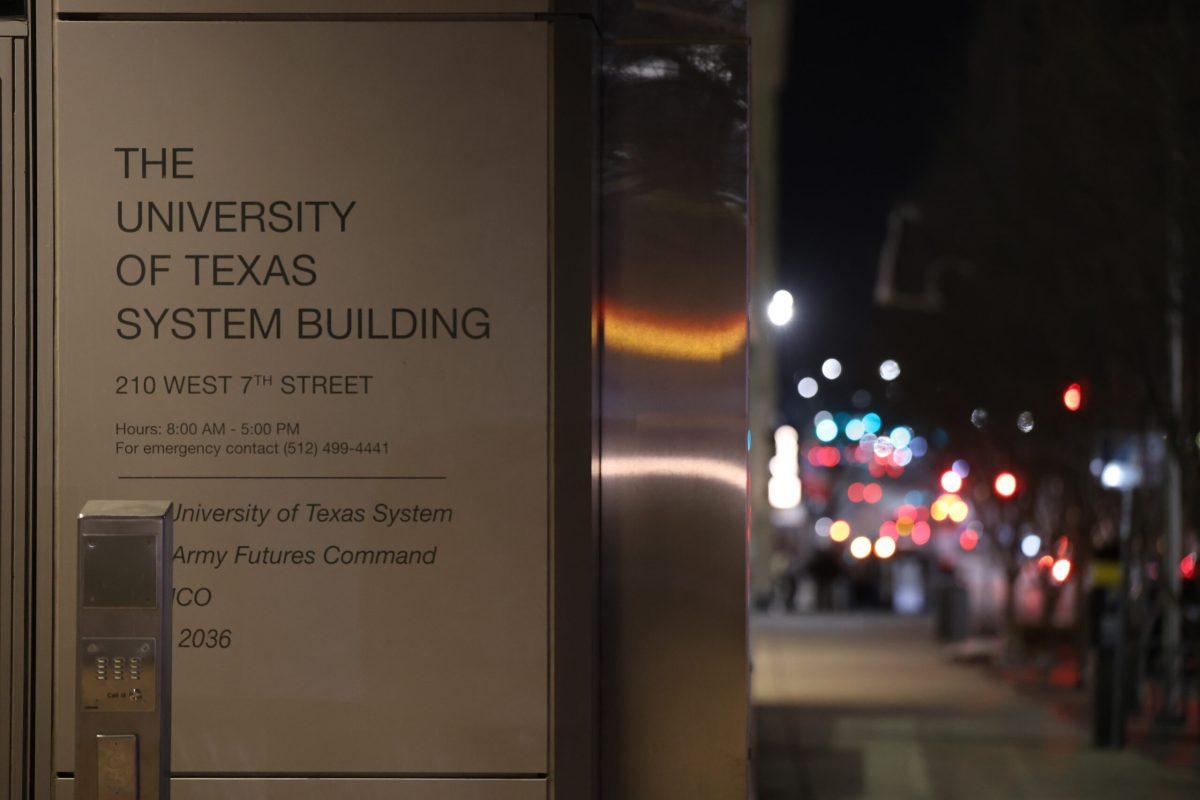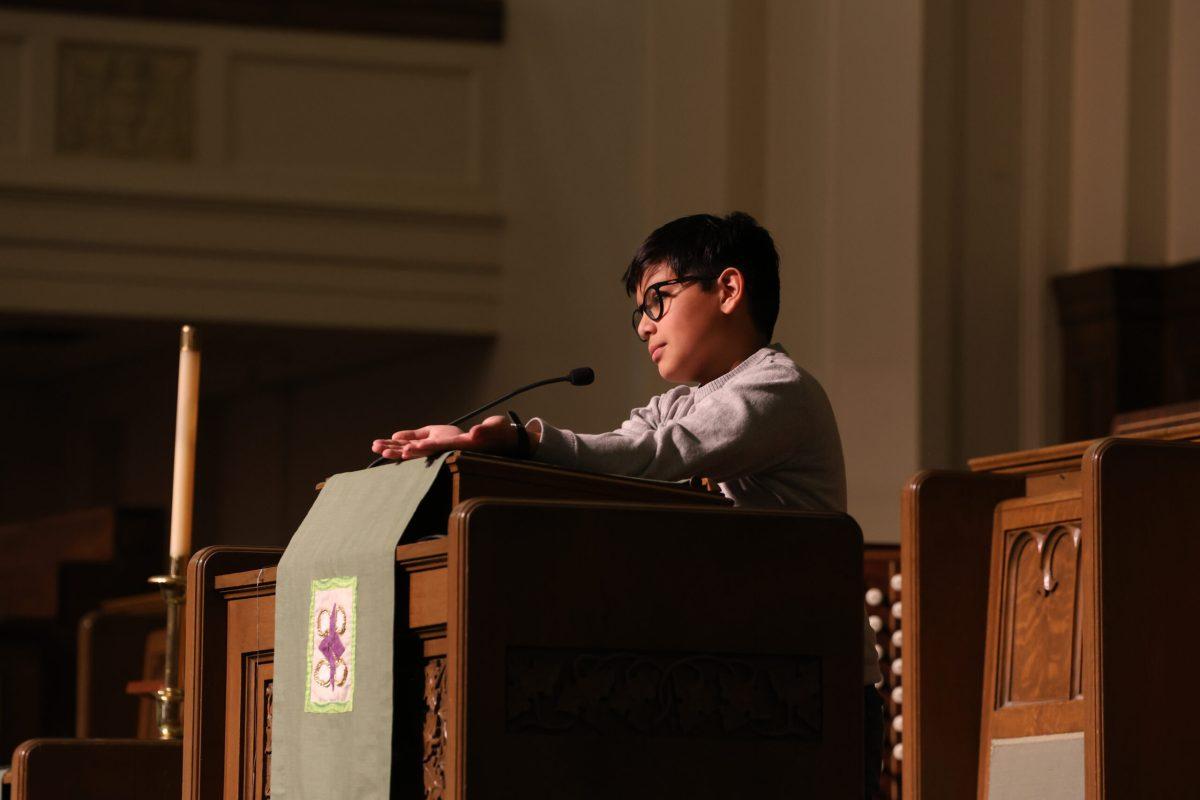A bill under consideration in the Texas House would increase the influence university governing boards and the Texas legislature have on key components of higher education at public universities, including curriculum oversight, hiring authority and changes to faculty complaint policies.
Senate Bill 37, proposed by Sen. Brandon Creighton (R-Conroe), would also heavily revise policies regarding a university’s faculty council or senate, establish an office to facilitate communication between an education institution and the legislature and establish a curriculum review committee appointed almost entirely by state leaders.
“Strong oversight is essential to keeping Texas universities at the forefront of education and innovation,” Creighton said in a statement released after the bill passed the Senate earlier this month. “SB 37 ensures that Texas universities stay focused on their core mission—educating students, driving research and innovation, and preserving Texas’ role as a national leader in higher education.”
The bill mainly increases the power of university system governing boards, which at UT is the UT System Board of Regents. Regents are appointed by the Texas governor and confirmed by the Senate.
SB 37 is the latest in a string of education policies the legislature has undertaken this session. If the bill is approved, governing boards will have the ability to directly appoint the deans of colleges, which, at UT, are currently appointed by the provost.
The boards would also be able to overturn or undo any hiring decision at a system institution. All hiring decisions would be reported to the governor, lieutenant governor and speaker of the House. The bill states that faculty “may not have final decision making authority” on hiring.
At least five UT faculty members across disciplines that are also members of the UT chapter of the American Association of University Professors testified against the bill in its senate hearing. Among those professors was Karma Chávez, the chair of the Mexican American and Latina/o Studies department.
Chávez said she testified at the hearing because the bill is largely redundant and could, according to Chávez, expand financial waste. A leading motivator for her testimony, however, were the hiring changes it introduces, which she said could have drastic consequences on university independence.
“With all appointments having to go through the Board of Regents, you’re essentially putting political appointees who may or may not have anything to do with the ordinary life of a university in charge of the decisions that should be in the hands of experts,” Chávez said.
The bill’s changes to curriculum oversight also concern Chávez. SB 37 would require governing boards to conduct a “comprehensive review” of university curriculum once every five years to ensure they prioritize participation in the workforce. Curriculum would also need to comply with legislative regulations like those limiting diversity, equity and inclusion practices. It also would ensure curriculum does “not require a student to adopt a belief that any race, sex, or ethnicity or social, political, or religious belief is inherently superior.”
“As I said in my testimony to Sen. Creighton, ‘You guys created a school of civic leadership,’ and if you just look at their about page, it’s all ideology,” Chávez said. “‘So I know you’re thinking about ‘woke’ ideology, but you can’t have (it) both ways.’ … SB 37 essentially puts universities into receivership permanently, which is pretty terrifying.”
Receivership generally involves an administrative entity, in this case university governing boards or the state, overseeing aspects of a university that have been deemed ineffective or underperforming.
Governing boards would assess curriculum offerings for financial value to a university, and would have ultimate authority on all curriculum decisions made at a university.
Mandatory reviews would also be conducted of degree programs, without which universities would not receive state funding, and governing boards would be required to rate each program. Ratings would determine whether or not a degree is eliminated, and the results of all reviews would be provided to the governor, lieutenant governor and speaker of the House.
Chávez worries that interference in degree programs could change universities for the worse, focusing on short-term output over meaningful long-term investments.
“The hard thing for elected officials to understand is that universities definitionally and necessarily are not like other industries, because the kind of work they do is just different,” Chávez said. “It takes me 10 years to write a book, and that’s my primary thing. And so you may not see real evidence of my work in a material object for a very long time, and then you may only see three or four of those over the course of my whole career, so it’s a different kind of industry. I worry about that.”
Faculty councils and senates, which currently serve advisory roles in the UT System, would also be affected by SB 37. In addition to enshrining their advisory role into law, under the bill, councils and senates could only be formed by a governing board. Councils would consist of one member appointed by the president from each school or college in addition to other members voted by faculty.
Members appointed by the president would be allowed to serve up to six consecutive one-year terms, while those elected would only serve one two-year term before a mandatory hiatus. Creighton said the reforms redirect authority back to governing boards.
“For too long, unelected faculty senates have operated behind closed doors,” Creighton said in a statement. “SB 37 reaffirms that the authority belongs to the Board of Regents so that our universities can stay focused on what matters.”
Members can be removed by the university president for causes including using their position for “political advocacy.” Additionally, the three leading members of a senate or council would be appointed by the president with the approval of the governing board.
“Higher (education) is a threat, because I think the more people know, the more liberal they become,” Chávez said. “And I don’t necessarily mean liberal politically — I mean liberal as in very open minded, even if they end up landing on conservative politics, because once you understand the complexity of issues, you’re going to see solutions more complexly as well.”
SB 37 also requires a president or provost to review faculty grievances. Finally, it establishes a one-time “curriculum review committee” to enact recommendations that must be adopted by 2027. Three of the 13 members, including the chair, would be appointed by the governor, four by the lieutenant governor and the speaker of the house and the remainder by the Texas Higher Education Coordinating Board. There is no requirement for any position to have prior education experience.
Creighton, the author of the bill, and Rep. Matt Shaheen, the author of the identical bill in the House, did not respond to requests for comment.
SB 37 passed the Senate along party lines 20-11 April 16. It is currently under review in the House Higher Education committee.



















